Earth
Sign up for our newsletter
We summarize the week's scientific breakthroughs every Thursday.
-
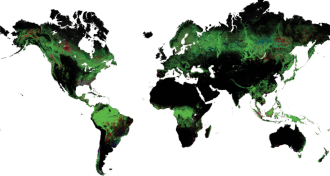 Ecosystems
EcosystemsOnline map tracks forest shifts from space
By layering more than 650,000 satellite images onto a Google map, researchers have created a new tool to track forest cover.
By Meghan Rosen -
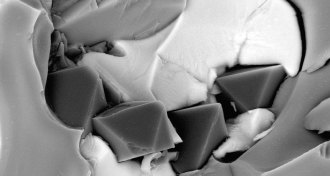 Earth
EarthEarth’s plate boundaries may nurture diamond formation
An experiment mimicking conditions deep in the Earth suggests that some tectonic plate boundaries may make ideal diamond nurseries.
-
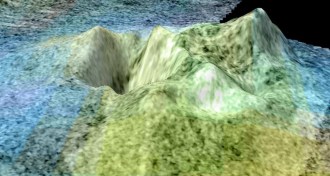 Earth
EarthCryovolcano
An ice volcano that erupts slurries of volatile compounds such as water or methane instead of lava.
By Erin Wayman -
 Climate
ClimateMethane emissions may be far higher than estimated
U.S. fossil fuel and cattle industries may emit far more methane than government estimates indicate.
-
 Agriculture
AgricultureProbiotics may protect piglets from E. coli infection
Beneficial bacteria could replace antibiotics in pig feed.
By Beth Mole -
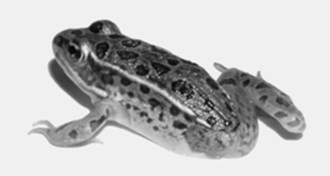 Animals
AnimalsMalformed frogs rarer than thought
Frogs with skin cysts or shortened or missing legs make up only 2 percent of the amphibians collected during a 10-year study.
-
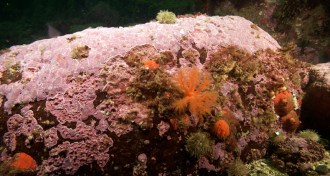 Climate
ClimateArctic algae crusts preserve climate data
The records show that sea-ice cover has been declining since 1850.
-
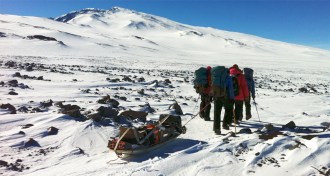 Earth
EarthFire may smolder under Antarctic ice
Quakes hint at moving magma that could influence glacial flow.
By Beth Mole -
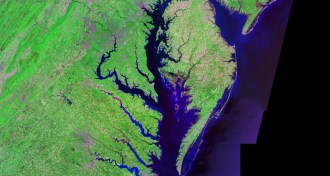 Oceans
OceansExtremely salty water is at least 100 million years old
Supersaline sediments off East Coast shed light on Atlantic Ocean’s early history.
-
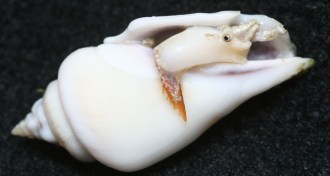 Animals
AnimalsGassed snails can’t jump
When exposed to high levels of carbon dioxide, some snails move like slugs and others don’t jump at all.
-
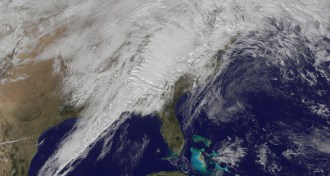 Climate
ClimateStorms are becoming more intense, moving toward poles
Researchers find that altered rainfall patterns have the fingerprints of human-caused climate change.
-
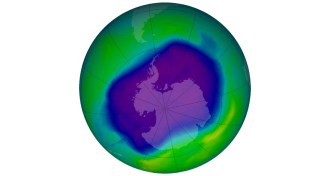 Climate
ClimateHistorical events linked to changes in Earth’s temperature
Ozone treaty, wars and Great Depression influenced global warming rate, scientists find.